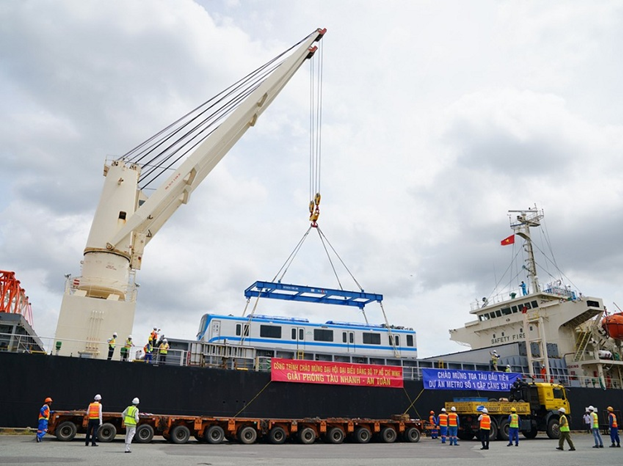 Media-OutReach Newswire
Media-OutReach Newswire

SINGAPORE - Media OutReach - 23September 2020 - Aon plc (NYSE:AON), a leading global professional services firm providing a broad range ofrisk, retirement and health solutions, has released the results of a new globalpulse survey focused on how companies are rethinking their human capitalstrategies in response to the humanitarian and economic impacts of the novelcoronavirus (COVID-19) pandemic.
TheCOVID-19 crisis has forced companies to evaluate employees beyond their current roles and look closely at employee potential,capability, and most importantly, adaptability to change. Building an agileworkforce has emerged as a top priority for human resources (HR) and businessleaders.
Aonconducted the survey of 415 HR leaders and professionals in Singapore from 17August to 25 August 2020, called "Accelerating Workforce Agility and Resilience."Eighty four percent of respondents said that an agile workforce, defined as quicklyassigning new roles to employees to support changing business needs, is nowmore important to the success of their business than ever before. However, only38% currently view their workforces as agile.
"Thisworkforce agility gap between what employees can handle today versus what willbe required of them in the near future is a major challenge for companiesacross industries," said Na Boon Chong, Managing Director and Partner, HumanCapital, Southeast Asia, Aon. "The main issue that businesses are facing todayis reskilling the workforce in the right way. At the same time, the ease of remote working tells us that closing offborders to talent is not thesolution."
As morecompanies plan to extend their remote working arrangements, three-quarters ofall respondents said they are investing in new tools and technology to improveproductivity and collaboration. More than half of the respondents are also providingemployees with wellbeing tools and programmes.
Additionally,46% of survey respondents said that their companies have enhanced or areconsidering enhancing allowances and reimbursements to cover mobile phone,internet and home office expenses.
Whilethe above measures go beyond simply identifying the roles that can or cannotwork remotely, companies are still unsure of exactly how their working modelsneed to change. During a recent meeting of Aon's Work, Travel and ConveneCoalition that included Singapore's leading companies, several Coalitionmembers emphasized the need to quantify the impact of remote work, observingthat most Singapore companies have not yet started measuring remote productivityrelative to pre-pandemic times.
Enhancingremote work arrangements will create new types of productivity measurements,especially around collaboration metrics, that are more suited to the agileworkforce of the future. This was echoed by 84% of survey respondents who saidthat assessing employees for adaptability, collaboration and communicationsskills is extremely important in the current business climate.
"Creatingagile workforces across industries will include data analysis, segmentation ofthe workforce, and a sustained period of experimentation, until the right mixof technology and human capital can be achieved," said Alexander Krasavin,Partner and Regional Commercial Head, Human Capital, APAC & MEA, Aon."Remote working has highlighted the massive shift in working models, bringing intosharper focus the issue of agility. Various sectors are thinking about thesethings differently -- some are using data and questioning how to make remotework better. Others, such as technology companies, have taken a more bottom-upapproach."
Whenremote work is no longer a benefit but a norm, the talent acquisition processis opening up to a global pool of candidates, making the correlation betweenremote workforces and diversity clear to HR leaders.
Attractingand retaining diverse employees ranked third among the top 10 factors needed tobuild and maintain an agile workforce, according to Aon's survey. In addition, 87%of respondents felt that an inclusive work culture was important, ahead offactors such as identifying employees with digital skills, introducing newcareer paths, or developing flexible compensation programmes.
Toenable an inclusive work culture, 66% of survey respondents say their companiesare prepared to support working parents who may not have access to childcarefacilities. However, these efforts are currently tied to enhancing EmployeeAssistance Programs (EAPs). More broadly, 33% of survey respondents indicatedthat their companies have changed, or are actively considering changing, theirtime-off policies in response to the pandemic. Among these companies, 28%created additional emergency paid leave policies beyond what is required by lawto cover caregiving, illness or quarantining in 2020. Another 8% createdpolicies covering both 2020 and 2021, and 2% created permanent policies.
Effortsto create an inclusive workplace, among many others, are believed to improveworkforce resilience. "The COVID-19 pandemic has raised important questions,such as should businesses widen the scope of social responsibility by partneringmore with the government to pay for some of the externalities? Is resiliencemore important than efficiency?" observed Na Boon Chong. Addressing thesequestions will create the right kind of resilient and agile workforce − onethat makes the future of Singapore a 'new better'.
For additionalAon insights on how companies can support workforce resilience, please visit: aon.com/risingresilient.
Additional survey findings
Forcomplete study results by region and industry, including additional data onperformance management practices, rewards programmes, workforce actionsincluding layoffs and furloughs, the state of hiring, and adjustments totime-off policies, click here.
This document has been provided as an informational resource forAon clients and business partners. It is intended to provide general guidanceon potential exposures and is not intended to provide medical advice or addressmedical concerns or specific risk circumstances. Due to the dynamic nature ofinfectious diseases, Aon cannot be held liable for the guidance provided. Aonstrongly encourages readers to seek additional safety, medical andepidemiologic information from credible sources such as the Centers for DiseaseControl and Prevention and World Health Organization. In regard to insurancecoverage questions, whether coverage applies, or if a policy will respond toany risk or circumstance is subject to the specific terms and conditions of thepolicies and contracts at issue and underwriter determination.
This press release provides general information and data as aninformational resource. Readers should not use this report as a replacement forlegal, tax, accounting or other consulting advice that is specific to the factsand circumstances of their business. Aon encourages all readers to consult withappropriate advisors before acting on any of the information contained in thispress release and accompanying reporting.
Aon plc (NYSE:AON) is a leading global professional services firm providing a broad range ofrisk, retirement and health solutions. Our 50,000 colleagues in 120 countriesempower results for clients by using proprietary data and analytics to deliverinsights that reduce volatility and improve performance.
|
|
|
|
Stay upto date by visiting the AonNewsroom andhear from Aon's expert advisors in The OneBrief.
Sign upfor News Alerts here




